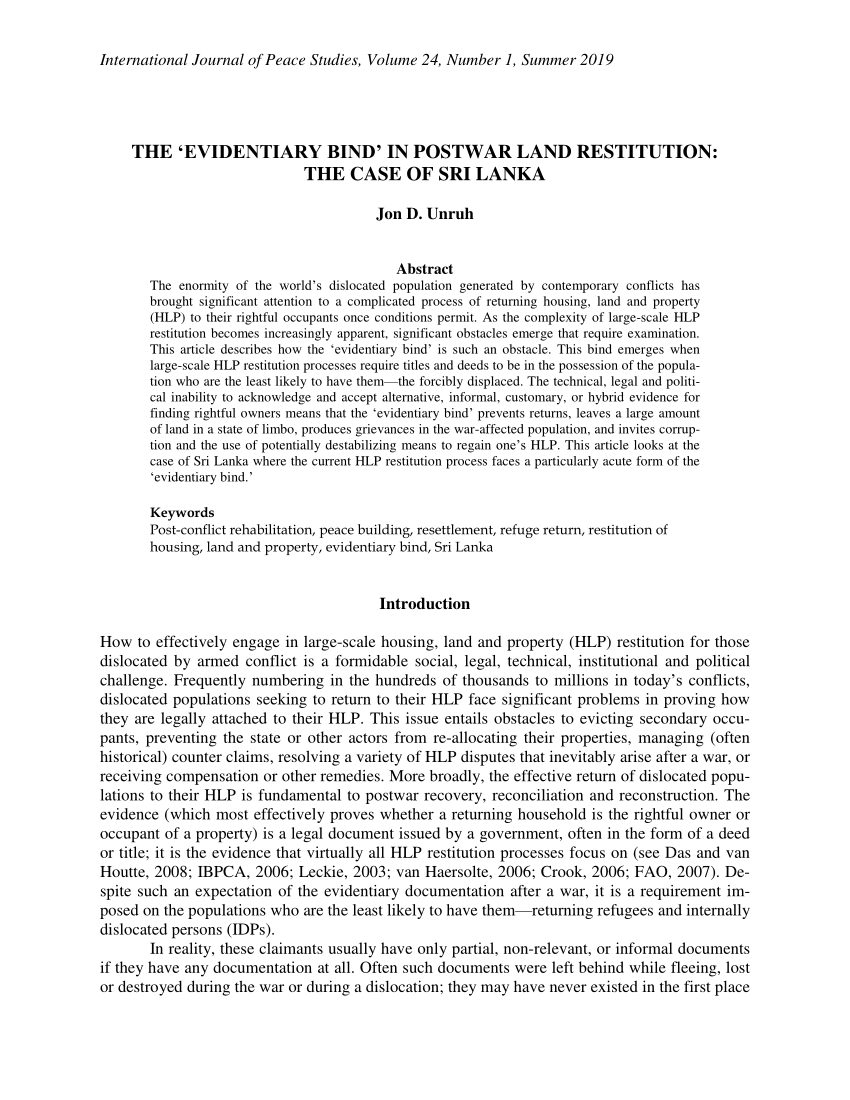Resource information
The enormity of the world’s dislocated population generated by contemporary conflicts has brought significant attention to a complicated process of returning housing, land and property (HLP) to their rightful occupants once conditions permit. As the complexity of large-scale HLP restitution becomes increasingly apparent, significant obstacles emerge that require examination. This article describes how the ‘evidentiary bind’ is such an obstacle. This bind emerges when large-scale HLP restitution processes require titles and deeds to be in the possession of the population who are the least likely to have them—the forcibly displaced. The technical, legal and political inability to acknowledge and accept alternative, informal, customary, or hybrid evidence for finding rightful owners means that the ‘evidentiary bind’ prevents returns, leaves a large amount of land in a state of limbo, produces grievances in the war-affected population, and invites corruption and the use of potentially destabilizing means to regain one’s HLP. This article looks at the case of Sri Lanka where the current HLP restitution process faces a particularly acute form of the ‘evidentiary bind.’


